Ivyleaf morningglory
June 10, 2015
Ipomoea hederacea L. Jacq. Convolvulaceae (Morningglory family)
Life cycle
Twining summer annual vine.
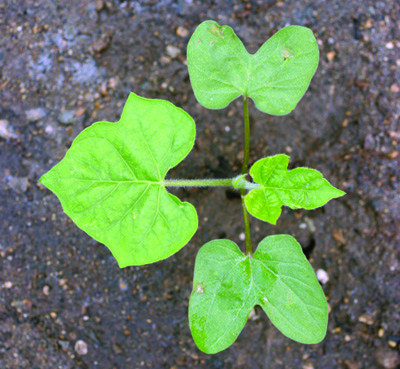
Ivyleaf morningglory seedling.
Leaves
Cotyledons are butterfly-shaped and usually narrower at the base. Leaves are alternate with erect hairs on both surfaces. The first leaf may be unlobed; all other leaves are three-lobed and ivy-shaped.
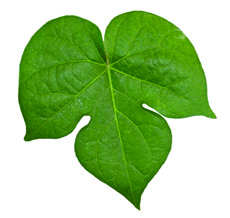
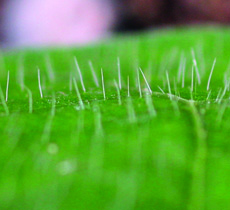
Ivyleaf morningglory leaf (left). Erect hairs of ivyleaf and entireleaf morningglory (right).
Stems
Densely hairy, climbing or trailing, twining vines up to 6 feet or more in length.
Flowers and fruit
Blue to purple or white petals fused into a funnel shape. Fruit are egg-shaped capsules containing dull gray, brown or black seeds with one round and two flattened surfaces.
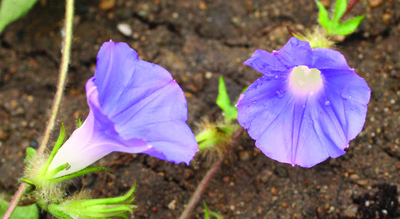
Ivyleaf morningglory flowers.
Reproduction
Seeds.
Similar weeds
Entireleaf morningglory (I. hederacea var. integriuscula Gray)
Differs from ivyleaf morningglory only by having heart-shaped leaves. Leaf hairs are erect on both surfaces.
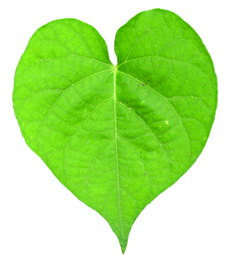
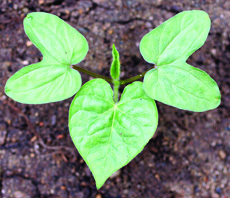
Entireleaf morningglory leaf (left) and seedling (right).
Pitted morningglory (I. lacunosa L.)
Differs by having V-shaped cotyledons and heart-shaped leaves with few to no hairs.
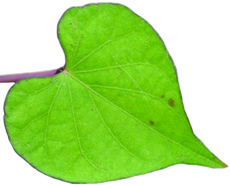
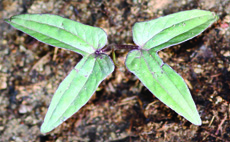
Pitted morningglory leaf (left) and seedling (right).
Tall morningglory (I. purpurea [L.] Roth)
Differs by having butterfly-shaped cotyledons with tip and base similar in width and heart-shaped leaves with dense hairs that lie flat.
Print a PDF of this page: Ivyleaf morningglory



 Print
Print Email
Email



